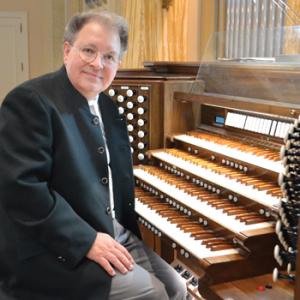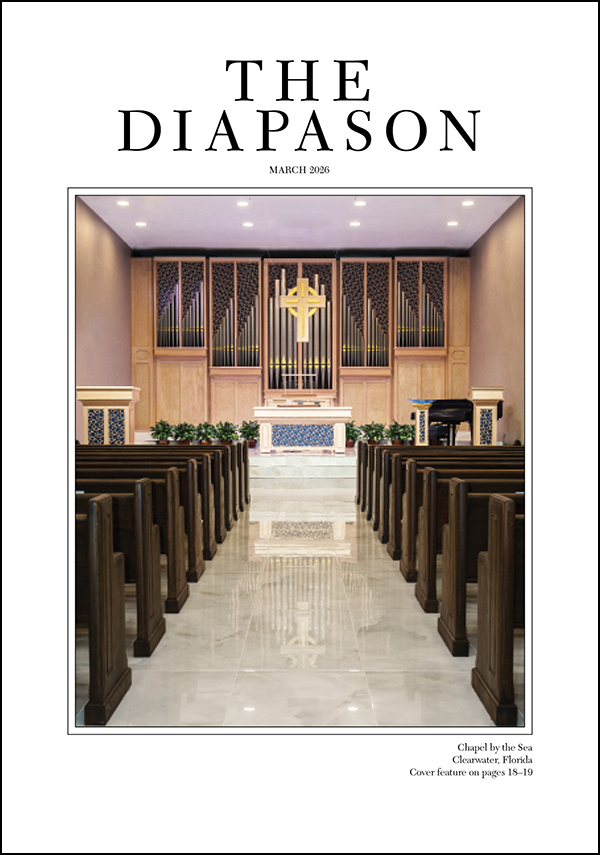
Frederick Hohman earned the Performer's Certificate, Mus.B., M.M., and D.M.A. degrees while in the organ class of David Craighead at the University of Rochester's Eastman School of Music. In 1984 he won First Prize in two prestigious organ competitions, each named in honor of a legendary American organ professor: Clarence Mader and Arthur Poister. Since 1984 Frederick's concert tours have taken him throughout the USA, and to the Caribbean, Australia, the United Kingdom and Finland, where he has appeared in concert and often recorded in venues ranging from the largest (Cathedral of St. John the Divine, New York City) to the most intimate. He has been featured in concert before regional and national conventions of the American Guild of Organists (AGO), the Organ Historical Society (OHS), and the American Institute of Organbuilders (AIO).
Frederick founded the Pro Organo recording label in 1985. Since then, Frederick produced over 350 organ and choral music titles, with 15 of these featuring his own performances. In the late 1990s Frederick pioneered the format of the “organ music video” years before the popular rise of YouTube, when he produced the “Midnight Pipes” television series. Segments from this Midnight Pipes t.v. series are seen today on Vimeo and YouTube, where Frederick’s playing of the Toccata from Widor’s Fifth Organ Symphony has gained almost over four million views with thousands of positive viewer comments.
In the 1980s Frederick championed the revival of the Symphonic School of Organ-Playing at a time when it was considered out of fashion. A critic with The Diapason magazine acclaimed Frederick as "one of the symphonic organ's strongest exponents.” Frederick’s 1984 Eastman School doctoral essay, "The Art of the Symphonic Organist," and his 1985 CD "Lemare Affair" fueled a revival in symphonic organ literature and performance practice. A series of newly-published organ transcriptions and several "Lemare Affair" sequel albums on the Pro Organo label soon followed.
Frederick received private tutelage from Eastman School Composition Chair Samuel Adler during the 1970s; however, Frederick’s compositions dating back to 1973 are only recently coming into print under the Zarex Scores insignia. He composes under his own name as well as under the nom de plume "Carlos Xavier Santiago."
From 2013–2015 Frederick served as Director of AGO’s national Committee on Continuing Professional Education (CCPE). Fulfilling a commission from the AGO in 2016, Frederick appears as the host and instructor in a series of 30 on-line informative videos, designed to help pianists to transition to the organ. This series, entitled “Lessons for the New Organist” was posted on-line in April, 2017.
Frederick has imparted guidance and advice to young organists since 1997 by serving as an adjudicator in 20 national organ competitions. Competitions drawing on his expertise are the Arthur Poister competition (3 years), Albert Schweitzer Organ Competition and Festival / USA (14 years), the Fort Wayne National Organ-Playing Competition (2 years), and the Herbert Davis State Organ Prize (2000), in Victoria, Australia.
Frederick has maintained his home and studio in South Bend, Indiana, since 1993. His studio instruments are a restored 1927 Austin Opus 323A console (with Hauptwerk), a 1959 John Challis Clavichord, a 1963 Hammond B-3 organ, a 1989 C. Bechstein D280 concert grand piano, and the prototype of a futuristic organ-like digital music platform of his own design which Frederick calls the “ORGAMUSE.”
More information at the websites:

